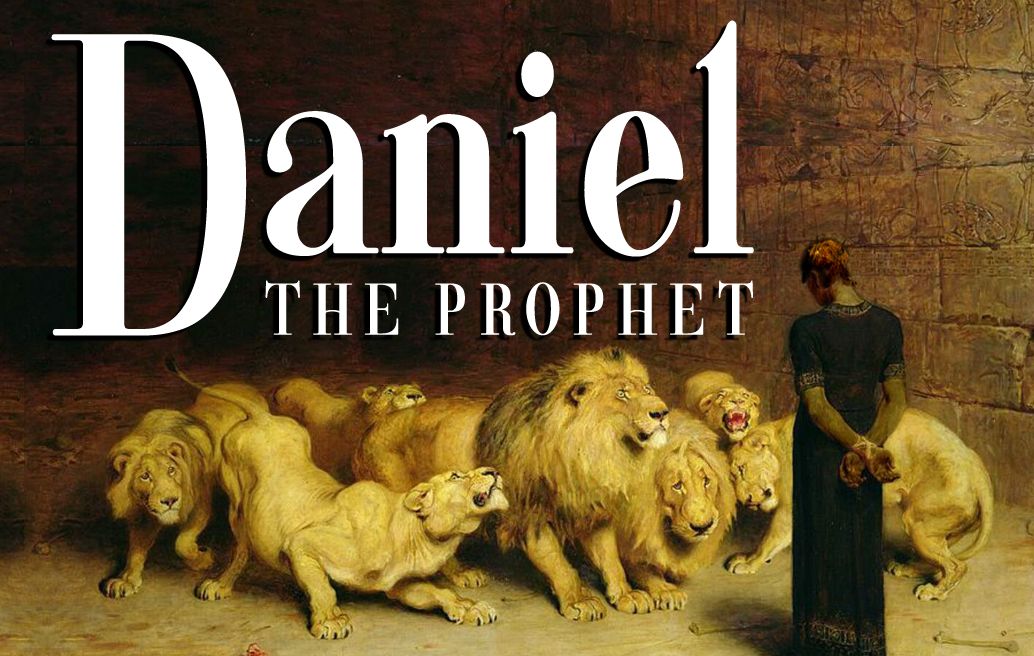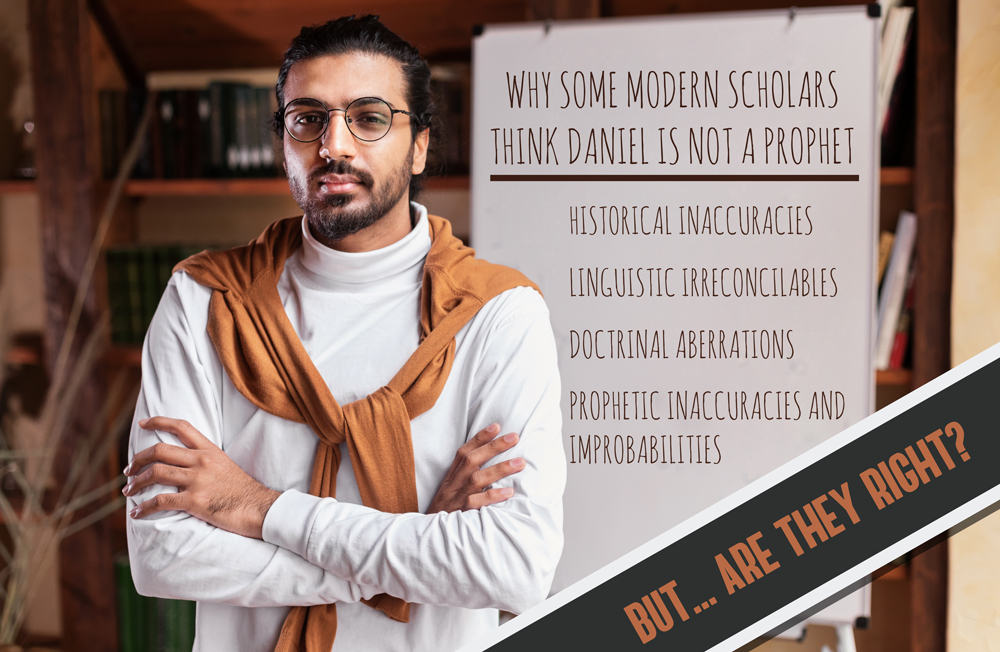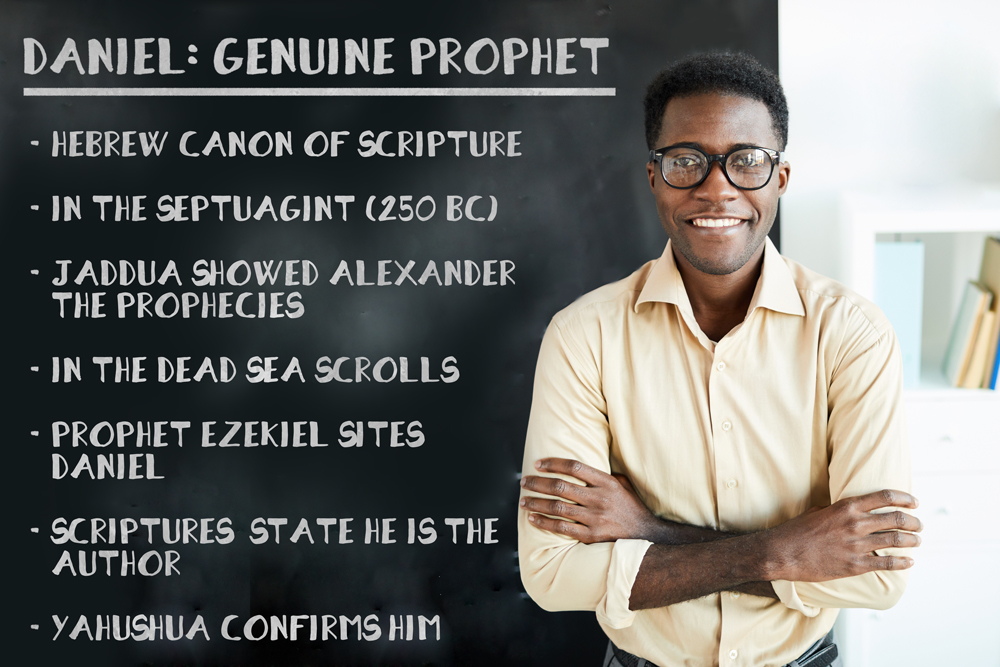
|
This is a non-WLC article. When using resources from outside authors, we only publish the content that is 100% in harmony with the Bible and WLC current biblical beliefs. So such articles can be treated as if coming directly from WLC. We have been greatly blessed by the ministry of many servants of Yahuwah. But we do not advise our members to explore other works by these authors. Such works, we have excluded from publications because they contain errors. Sadly, we have yet to find a ministry that is error-free. If you are shocked by some non-WLC published content [articles/episodes], keep in mind Proverbs 4:18. Our understanding of His truth is evolving, as more light is shed on our pathway. We cherish truth more than life, and seek it wherever it may be found. |

We all know the captivating story of Daniel in the lions’ den. But have you heard the real ending? You think you have, but have I got a surprise for you! It wasn’t Daniel’s traducers and their wives and children whose bones the lions had for lunch that fateful morning. Rather, according to this modern version, it is Daniel himself who has been gobbled up in the den by some modern “scholars” and “commentators.” Bit by bit, piece by piece, the man Yahushua designated as “Daniel the prophet” (Matt. 24:15) has had the flesh of his prophetic writing clawed away from our precious Scriptures, until all that is left are the bones of an emaciated skeleton, now euphemistically described as a “pseudonymous author” who wrote what is euphemistically called ex eventu prophecy.1
This means the story, according to such modern Biblical commentary, apparently should be that Daniel was no prophet of Yahuwah, because he wrote his book at the time of the Maccabees, around 165 BC, or about 400 years later than the time of the Babylonian exile in 586 BC. Rather than being a first-hand historical account by the eye-witness testimony of a Daniel carried from his homeland by King Nebuchadnezzar, this later “Daniel” wrote after the event. His prophecies are not supernaturally revealed by a Yahuwah who declares the end from the beginning. His “prophecies” are in fact, past history masquerading as prophecy. Daniel, we are invited to believe, wrote his book as a “parable” in the form of the apocalyptic genres we find in Jewish apocalyptic literature typically composed during the Maccabean revolts.
However, we are further assured by this commentary, we are not to be alarmed. The goal of this later Daniel, like that of the rest of that crop of inter-testament writers, was worthy enough. The writers of those books such as 1 Ezra, 2 Baruch, 4 Enoch, et al wished to encourage Yahuwah’s suffering people with the message that Yahuwah would at last break the heathen nations and so give His saints their reward. To achieve their literary goal such apocalyptic writers simply looked back at previous histories of their people, and re-interpreted such past history in the light of their current sufferings, even passing off such past history as prophecy. And so most “scholars” and “commentators” today place Daniel in this same category.
Traditionally, these modern scholars have justified their arguments under four headings. They allege Daniel has historical inaccuracies, or possibly more fairly, anachronisms. They allege linguistic irreconcilables (e.g. Daniel uses Greek words, and wrote in a later Hebrew and Aramaic style). They allege doctrinal aberrations and, relevant to this brief article, they allege prophetic inaccuracies and improbabilities. Such is the modern spin.

Did I say modern? Woops. I recall a critic by the name of Porphyry who was born in AD 233 in Tyre, Syria. Porphyry was a disciple of the famous Neo-Platonic philosopher Plotinus. He was a bitter opponent of Christianity and wrote fifteen books titled Against the Christians. As far as I can tell, Porphyry was the first critic who alleged Daniel was not prophecy, and was not written by Daniel, but was composed around the time of the Maccabean revolt. He tried to suck all the prophetic wind out of “Daniel the prophet” by indicting his book as spurious. Now, I can excuse Porphyry because he was an avowed and hostile skeptic. His aim was to discredit Christianity. He unashamedly hated Christianity. But I cannot excuse those today who say they speak for Christ while adopting Porphyry’s exact same methods to cast doubt on what was clearly a favorite book that Yahushua himself read and loved and implicitly believed.
So, what shall we say to this? There is no space here to address in detail such weighty issues. But briefly, let us note a few pertinent points. First, the book of Daniel has always been included in the Hebrew canon of Scripture. Whether the book was originally in the section called “The Prophets” or “The Writings” is irrelevant. After the debate is over, nobody will disagree the book was included in the sacred canon of the Hebrew Bible, and has always been so fixed. (Other very noble books are not included; books such as 1 Maccabees or Ecclesiasticus. These two works, for example, were highly regarded by the Jews of the time, but are not in the canon, nor considered to be divinely inspired.) The reason is the ancient synagogue believed that after the prophet Malachi there was no prophetic voice for 400 years until the voice of John the Baptist. This is to say, those who allege Daniel was an imposter writing around 165 BC want us to believe the book of Daniel was smuggled into the canon by the very men who knew Nehemiah and Malachi were the last true prophets of the Old Testament era; by the very men who revered their holy Scriptures as divinely inspired. A recurring sadness in 1 Maccabees is that “there is no prophet in the land”! The dying priest Mattathias in 1 Maccabeus 2:49-70 used the example of Daniel and his three companions to rally his sons to be found faithful to the Yahuwah of Israel. He appealed to the voice of a past prophet because there was no living “Daniel the prophet” in the land then. Bottom line: If Daniel was written in the inter-testament period he was “no prophet”! The fact is he was a prophet because he wrote and spoke before Yahuwah silenced His prophets in the 400 years leading up to John the Baptist’ s grand announcement in the wilderness.
Second, every Bible student knows that the Septuagint, the LXX (the Greek version of the Hebrew Bible) was translated around the years 300 to 250 BC during the years of the Egyptian Ptolemies. And guess what? The book of Daniel that you and I read today was and is there in the Septuagint! If you are following the math you will know that 250 BC is chronologically prior to 165 AD.
Thirdly, and to follow on, I have always loved the story of Alexander the Great as recounted by Josephus (who wrote about 80 AD). In his Antiquities of the Jews, Book XI, chapter 8, Josephus tells us a gripping story of how during the siege of Tyre the great Greek conqueror asked the Jews for provisions for his army. Jaddua, the high priest, refused Alexander’s request. The reason he gave was that the Jews had sworn allegiance to the Persian king, Darius. Once Alexander had overcome Tyre, he furiously marched on Jerusalem to teach the Jews a lesson.
It seems Jaddua the high priest had been told by Yahuwah in a dream what the Jews must do. All the priests dressed in white. Jaddua put on his high priestly garb, a scarlet robe, the breastplate and the golden mitre. Followed by the procession of the priests in white, and singing the songs of Zion, the Jews went out to greet Alexander on his white steed with his fierce and unstoppable army. According to Josephus, Jaddua showed Alexander the prophecies of Daniel, as read in chapter 8:1-8 and 15-22. These are passages that prophesied of Alexander’s arrival and invincibility on the world stage. Apparently, Alexander was so overcome that he offered sacrifices and worshipped the God of the Jews. The salient point is that this happened around 330 BC. The critics, of course, at least are consistent when they dismiss Josephus’ account as being that of a lying historian who also wrote after the event. The indisputable fact however remains: Alexander destroyed every city in Syria allied to Darius, with the sole exception of Jerusalem. Indeed, Alexander not only spared Jerusalem and its Temple, but highly favored it. Why? Well, make up your own mind. Josephus informs us of a very reasonable explanation: The impression made upon him by the reading of Daniel the prophet. Alexander was floored as he realized he was the star of this supernatural prediction written generations before his arrival!
Fourth, when the Dead Sea Scrolls came to light in 1947 we learned that the Qumran community had in their possession many ancient texts and fragments of the Hebrew prophetic Scriptures. Included in this treasured cache were fragments of the books of the prophets Isaiah and Daniel, amongst others. In his book Expository Sermons on the Book of Daniel W . A. Criswell comments: “The scrolls of Daniel date back practically to the time the critics say that Daniel was forged. The scrolls of Daniel...are written partly in Hebrew and partly in Aramaic, and the Aramaic is not at all the Aramaic of the other documents of the Maccabean period, but the eastern Aramaic of the sixth century BC. Where the Bible is, where Isaiah is, there Daniel is. And the Hebrew language of Daniel in the Qumran Scrolls is the good, classical, Biblical Hebrew of the Old Testament, not the Hebrew of the Maccabean period.” Understand the impact of this statement. On purely linguistic grounds Daniel was composed hundreds of years before modern commentators want us to believe it was composed. The real “Daniel the prophet” prophesied hundreds of years before the Maccabees. The real “Daniel the prophet” supernaturally revealed Yahuwah’s decreed future before the events came to pass in history. Daniel passes the test Yahuwah sets for genuineness (e.g. Deut. 18:21-22).
Fifth, consider this. The prophet Ezekiel in 14:14, 20 and in 28:3 mentions a certain Daniel alongside two other great heroes of the Hebrew Bible — Noah and Job. Remember that Ezekiel wrote at the time of the Babylonian exile and was a contemporary with Daniel. He calls this Daniel “righteous” and “wise.” I hardly think Yahuwah would call a man writing in 165 BC pretending to be His prophet (but actually looking back ex eventu and interpreting retrospectively) either righteous or wise. No! Ezekiel’s Daniel is famous for his holiness and wisdom in the same league as Noah and Job. Ezekiel testifies of a Daniel who is a true hero like the one I read of in my Bible today. Or shall we now question Ezekiel’s prophetic standing as well? Do we see where this line of inquiry inevitably leads us?
Sixth, let us consider this: The writer of Daniel in my Bible testifies that he is a “seer,” that is, a prophet, and that Yahuwah appeared to him in visions and spoke to him through angelic messengers and by other means. For instance in Daniel 8:1 he testifies, “a vision appeared to me, even to me, Daniel, subsequent to the one which appeared to me previously.” We are specifically told by this “me, Daniel” the precise years he interpreted Nebuchadnezzar’s dreams: “Now in the second year of the reign of Nebuchadnezzar, Nebuchadnezzar had dreams” (Dan. 2:1). Daniel testifies not only that Yahuwah told him the interpretation of Nebuchadnezzar’s dream but that he stood before the king and revealed its meaning during that king’s second year on his throne. Also in Daniel 7:1 we read, “In the first year of Belshazzar king of Babylon Daniel saw a dream and visions in his mind as he lay on his bed.” Then in Daniel chapter 8 Daniel’s solemn statement again reads, “In the third year of the reign of Belshazzar the king a vision appeared to me, Daniel.” Our choice is this: Either Daniel is who he claims to be and is telling the truth when he dates these visions and their inspired interpretations, or he is an imposter.

The idea that the book of Daniel is of the same genre as the other inter-testament writings is false for the reasons outlined above. In fact, Daniel is the prototype! Daniel is the first (and the only) genuine apocalypse in the Hebrew Bible. All later apocalyptic writers subsequently model themselves on the original prophet Daniel of the Babylonian exile!
And if you don’t believe a word I have written, I will in the seventh place finally appeal to my Lord and Messiah Yahushua. He calls Daniel “the prophet” (Matt. 24:15). Our Lord Yahushua did not say, “Daniel the pretender”! He did not nominate him “Daniel the parable man!” He did not say, “Daniel the commentator who looked back over his shoulder to his predecessors.” Not at all. Our Lord Yahushua himself believed the spirit of prophecy testified through Daniel. Or perhaps Yahushua who claimed every word he spoke was his Father’s was sadly mistaken after all?
In conclusion: To write Daniel off as a genuine eye witness to the historical events listed in the book that bears his name, to write Daniel off as a genuine prophet to whom Yahuwah revealed in remarkable detail the future events from Babylon onwards to the very consummation of this present evil age, is to threaten the whole fabric of Yahushua, his apostles and indeed the Scriptures themselves. It is to fatally rewrite the story. It is to see Daniel swallowed by his critics!
So who among us will be as noble as the anxious king of the Medes and the Persians whose sleep deserted him as Daniel spent the night in the lions’ den? Will we not be as concerned as the king of that vast empire for Daniel’s integrity, when he fasted the night, refusing to be distracted by any light-hearted entertainment, and before the sun arose in the morning rushed off in his pajamas to inquire after Daniel, “Has your Yahuwah whom you serve been able to deliver you from the lions?” (Dan. 6:18-20). I have a hunch the living Yahuwah will yet send His angel to stop all contrary mouths and vindicate “Daniel the prophet” in a Day near at hand.

1 Is a technical theological or historiographical term referring to a prophecy written after the author already had information about the events being "foretold". Wikipedia